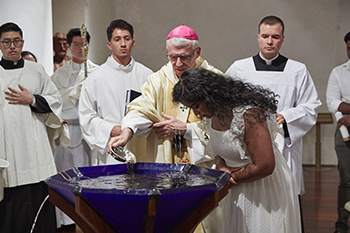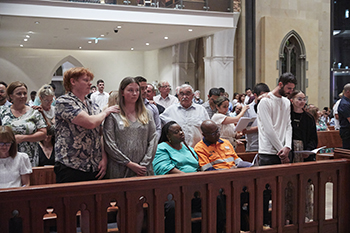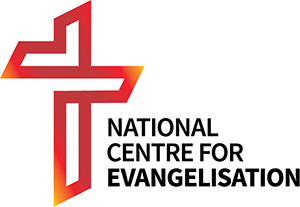 The Archdiocese of Perth has embarked on a bold strategy to improve the RCIA process within its parishes by allowing for greater flexibility while retaining the core principles of the process.
The Archdiocese of Perth has embarked on a bold strategy to improve the RCIA process within its parishes by allowing for greater flexibility while retaining the core principles of the process.
Released last September after 18 months of development, the ‘Guidelines for the Rite of Christian Initiation of Adults’ seek to inform priests and RCIA teams about the basic requirements of the process while recognising that each individual’s faith journey is unique and cannot be constrained to a specific time and place.
Carmel Suart, Director of the Archdiocese of Perth’s Office of Christian Initiation, said one of the guidelines’ aims was to emphasise the importance of starting and finishing the RCIA process at the right time for each individual.
“What's happened in our Archdiocese over the years is that Easter's become the time,” she said.
“Sometimes people aren't necessarily ready, but they get pushed through rather than wait another year. What we're proposing, with the Archbishop's blessing, is that we don't start a process at any particular time in a parish. We start a process when people come, when people are ready, and it takes as long as it needs to for these people then to be received into the Church.”
A simple way of encouraging this change of mentality is through a change in language, Dr Suart said.
“We've taken parishes away from the word ‘program’, and we're saying it's a ‘process’,” she said. “It takes the time that it takes… it doesn't have to begin at one set time and end at another set time.”
The process should also be tailored to the individual’s circumstances, which can vary significantly, Dr Suart said.
“Some people may have decided to be initiated into the faith, but they've been going to Mass for the last 20 years with their spouse,” she said. “So their process would be different from someone that would start from no background at all. We wouldn't expect that person who has been part of that faith journey with their husband or wife to sit there for a year and a half, we would ascertain, as they're going through, their particular needs and address those.
“It's never perfect, but at least we start to recognise that everybody doesn't have to be on the same journey doing the same things all the way along.”
The guidelines were shaped in part by the recommendations of a survey the Office of Christian Initiation undertook in 2022. One of its findings was that parishes often didn’t fully understand the RCIA process and its steps.
“We found that many parishes, for example, were not doing the scrutinies because they didn't understand them and therefore were afraid of them,” Dr Suart said.
“In the guidelines, things that the parishes weren’t sure of have been addressed.”
For those wishing to become Catholic, questions around marital situations often arise and can be complex, Dr Suart said.
“We spent quite a bit of time on questions on marriage annulment and really letting priests understand that it's their duty at the beginning to ask these questions,” she said.
“Even if they've got to accompany these people to the tribunal, then that's what has to happen.”
 Another common misconception discovered by the 2022 survey was that the RCIA should just be a small, hidden group within the parish.
Another common misconception discovered by the 2022 survey was that the RCIA should just be a small, hidden group within the parish.
“The guidelines have reemphasised that RCIA is a whole parish responsibility,” Dr Suart said. “It's not just a little group that runs on a Tuesday night and then we roll them out at Easter. You introduce them to the parish. You allow the parish to know who they are. The parish needs to pray for them.”
With more than 30 parishes in the Archdiocese of Perth active in the RCIA process, Dr Suart said there had been a greater number of younger adults becoming Catholic in recent years.
“Last year, at our Rite of Election, 52 per cent of our candidates were 40 and under,” she said.
“We’ve also found that in parishes that are not so central to Perth, there’s a little awakening of people that are about in Year 10 at school. We've had quite a few inquiries, not all of them have carried on, but they're looking for something.
“We just say to them, ‘Come and see’. And they can keep coming and seeing as long as they need to.”
Since the launch of the guidelines, Dr Suart said she had been contacted by other Australian dioceses requesting to adapt the document to their needs, a recognition of their practicality and relevance to the nation’s social landscape.
To view the ‘Guidelines for Rite of Christian Initiation of Adults’, visit the Archdiocese of Perth Office of Christian Initiation’s website.
Images: Archbishop Timothy Costelloe confers the Sacrament of Baptism at the Easter Vigil in 2024; Catechumens during the Rite of Election in 2024. Photos: Ron Tan/Archdiocese of Perth.
Words: Matthew Biddle



